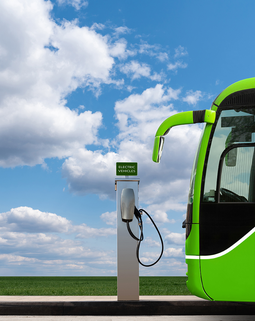In a significant move to bolster economic ties, Kenya and Japan have launched an Industrial Policy Dialogue, signaling their commitment to fostering industrial collaboration.
The Cabinet Secretary for Trade, Investment, and Industry, Rebecca Miano, met with Japan's Minister for Economy, Trade, and Industry, Yasutoshi Nishimura, on October 29 to kickstart this initiative.
Aims of the Industrial Policy Dialogue
The primary objective of the Industrial Policy Dialogue is to guide and strengthen economic relations between Kenya and Japan. Both nations seek to establish a framework that supports mutual benefits, emphasizing market access improvement, supply capacity enhancement, and joint efforts in product and export development.
Framework Development and Mutual Cooperation
Rebecca Miano shared that the detailed framework for the Industrial Policy Dialogue would be collaboratively determined by both countries at the working level, involving the Ministries of Trade, Investment, and Industry of Kenya and the Ministry of Economy, Trade, and Japan. The emphasis is on cultivating a strategic partnership that aligns with the global trend of Africa emerging as an attractive investment frontier.
Japan's Strategic Interest in Kenya
With Africa gaining prominence as the next investment frontier, Kenya stands out strategically for Japan. Miano affirmed that Kenya, with its well-positioned partnership, serves as a reliable manufacturing hub not only for the African continent but also for the global market.
Advocating for Investments and Mutual Engagement
The Industrial Policy Dialogue sets the stage for prioritizing investments, trade, and industry initiatives. Miano highlighted her agreement with the Japanese counterpart to engage regularly, championing the cause for mutual benefit in investments between the two countries.
Toyota Tsusho Corporation Meeting
In a separate meeting with Toyota Tsusho Corporation's top management, Rebecca Miano encouraged the company to leverage Kenya's strategic position and scale up local manufacturing of parts and components.
The focus is on enhancing the operations of Toyota Tsusho Corporation's assembling facility in Kenya, targeting not only the African market but also markets under the Africa Continental Free Trade Agreement.
National Automotive Policy and Collaborative Development
Miano informed investors about the National Automotive Policy, emphasizing Kenya's ambition to become the destination of choice for the automotive industry. The ongoing development of the automotive bill and regulations is proposed to be done in close consultation with industry stakeholders, ensuring alignment with emerging industry trends.
Sustainable Practices
The discussions also touched upon the importance of sustainable practices. The automotive bill and regulations will incorporate provisions for End-of-Life Vehicle recycling, addressing environmental concerns associated with used cars and batteries.
Miano committed to supporting the finalization of the bill and regulations, emphasizing increased local content to boost market access in the region.
Capacity Building and Transition to Electric Technology
Recognizing the need for capacity building, the meeting underscored the importance of local manufacturers of parts and components keeping pace with the industry's demands in terms of technology and volume.
In support of environmentally friendly technology, the Kenya Bureau of Standards will expedite the development of standards for new types of batteries and electric motors.
Toyota Tsusho Corporation's Role in Industry Growth
Considering the financial difficulties faced by local automotive assembling facilities, including Kenya Vehicle Manufacturers, Toyota Tsusho Corporation is urged to play a pivotal role in preventing the collapse of these facilities.
The emphasis is on deliberate capacity building of local manufacturers to ensure they can meet industry demands in terms of technology and volume.
Conclusion:
In conclusion, the collaborative efforts between Kenya and Japan, both at the policy level and in industry partnerships, signal a proactive approach to sustainable economic development and mutual benefit. The Industrial Policy Dialogue and strategic engagements with key industry players set the stage for a transformative journey in the automotive and industrial landscape.





